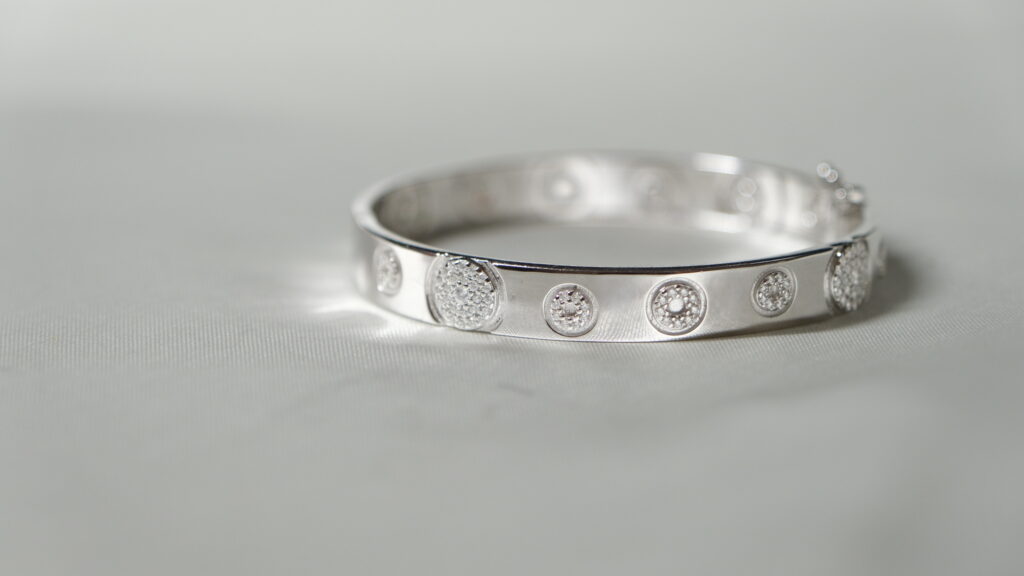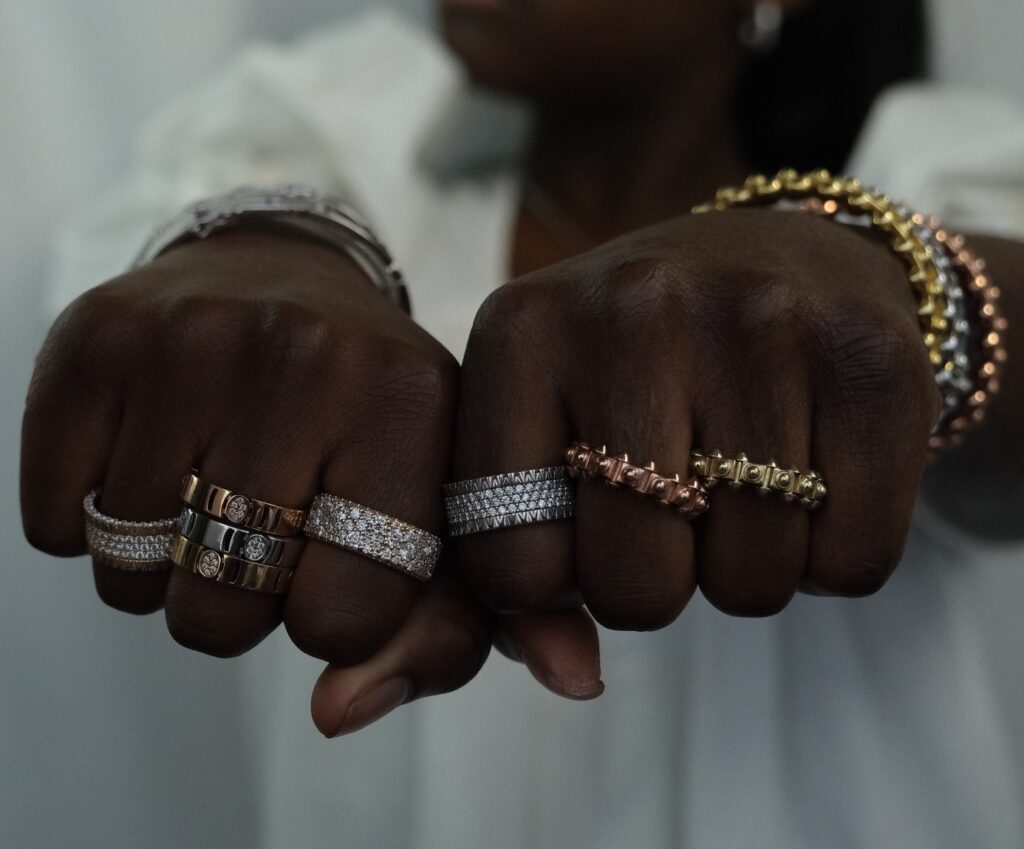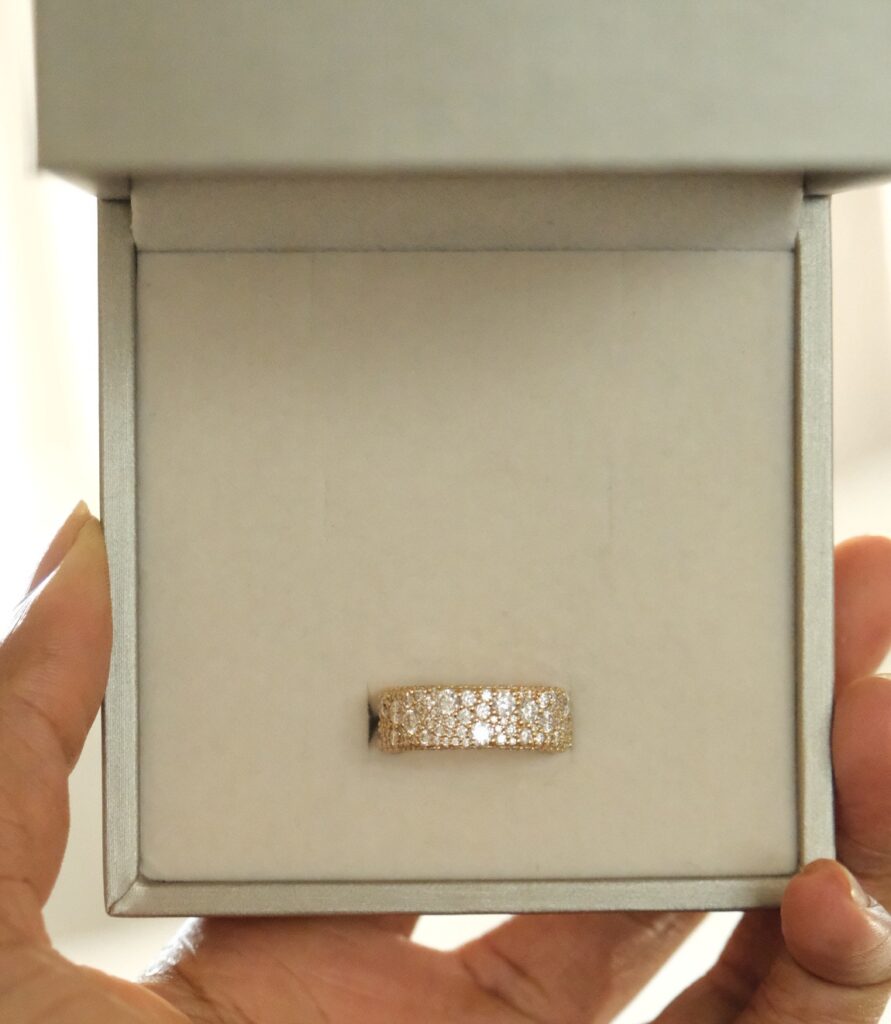Diamonds
ETHICAL DIAMONDS
A diamond cut is a key factor to consider when choosing your next piece of diamond jewelry.
By Chinwe, Chief Creative Officer
We all know the importance of maintaining a high ethical tone in our work and relationships. Ethically sourced diamonds are a top priority when sourcing diamonds. Our jewels come from safe working conditions where they’re mined by people who care deeply about sustaining those standards, so you can be sure your purchase will always reflect what matters most: ethics…
-
Eternity Band Ring – 18K Gold 1.04ct
18K Gold
£2,372 Select options This product has multiple variants. The options may be chosen on the product page -
Flower Stud Diamond Earrings – 18K White Gold – 1.7ct
18K White Gold
£6,219 Add to cart -
Spiralle Stud Earrings – 18K Gold – 0.23ct
18K Gold
£2,870 Add to cart
Ethical diamonds are a shining example of how the jewellery industry can embrace sustainability and social responsibility. These diamonds are sourced, mined, and processed in a manner that prioritizes humane practices, environmental stewardship, and fair labour conditions.
At the heart of ethical diamonds is the commitment to conflict-free sourcing. Unlike traditional diamonds, which may have been mined in regions plagued by armed conflict and human rights abuses, ethical diamonds are sourced from mines that adhere to strict labor and environmental standards. This ensures that the diamonds are not tainted by the suffering of workers or the exploitation of communities.
Moreover, ethical diamonds often come with certifications that provide transparency about their origins and production processes. Organizations like the Kimberley Process Certification Scheme and initiatives like the Responsible Jewellery Council play crucial roles in certifying and regulating ethical diamond sourcing and trade.
In addition to addressing humanitarian concerns, ethical diamonds also prioritize environmental sustainability. Responsible mining practices aim to minimize ecological damage, rehabilitate mined areas, and reduce the carbon footprint associated with diamond extraction and processing. Some ethical diamond initiatives even support reforestation efforts and invest in renewable energy projects to offset environmental impacts.
Furthermore, ethical diamonds promote fair labor practices throughout the supply chain. This means ensuring that miners receive fair wages, safe working conditions, and opportunities for professional development. By supporting ethical diamond brands, consumers can contribute to the empowerment of mining communities and the improvement of their livelihoods.
Choosing ethical diamonds is not just about owning a beautiful piece of jewellery; it’s about making a positive impact on the world. By supporting ethical practices in the diamond industry, consumers can promote sustainability, social justice, and transparency. Together, we can ensure that every diamond tells a story of integrity, compassion, and ethical stewardship.
In addition our diamond jewellery pieces comprise of these ethical diamonds which we uphold due to it’s importance. Our customers are guaranteed of receiving high-quality pieces while still maintaining integrity across our processes.
-
Arc Ring – 18K Rose Gold 0.24ct
18K Rose Gold
£3,048 Select options This product has multiple variants. The options may be chosen on the product page -
Constellation Ring – 18K Gold 4.65ct
18K Gold
£9,950 Select options This product has multiple variants. The options may be chosen on the product page -
Love Bubble Bracelet – 18K White Gold
18K White Gold
£6,843 Select options This product has multiple variants. The options may be chosen on the product page


Natural Diamonds vs Lab Grown Diamonds vs Moissanites
Mined diamonds are often classed as “natural“. This is due to being created organically within the Earth’s crust, where carbons get put under extreme heat and pressure until they form into diamond. Once mined these precious gemstones have different grades based off their quality which include: cut (how it’s polished) clarity/inclusion(whether there’re any visible flaws), colour range like honeymooners might dream up when buying gold jewelry-destructive yellow—to ultra luxurious black options! Ethical sources make sure you buy from reputable companies who care about maintaining good working conditions for everyone involved in mining ethical
Lab grown diamonds are made in a controlled laboratory environment. Advanced technology is used to replicate the conditions which natural ethical diamonds are formed in. They display the same characteristics as traditional diamonds.
Moissanite is a diamond alternative that’s much less expensive than its natural counterpart. On the Mohs scale of relative hardness, a moissanite is rated between 9.25-9.5 while a diamond is classed as 10, which makes it an exquisite gemstone for jewelry makers. Due to its rarity, the moissanite used in our fine jewelry is lab created. Moissanite gemstone are cost effective alternative to diamonds with significant value.


